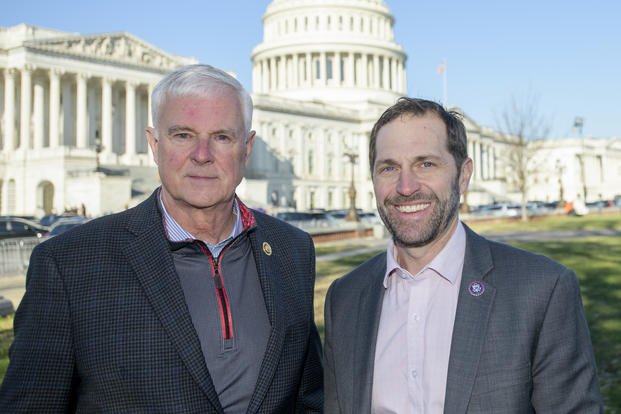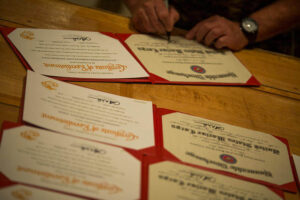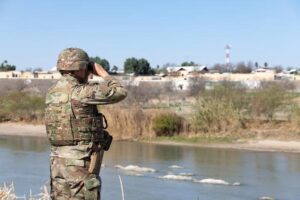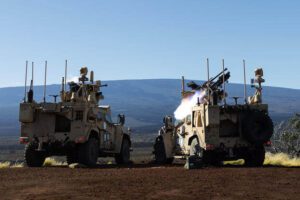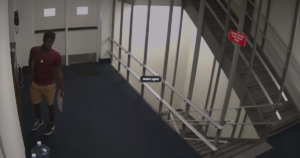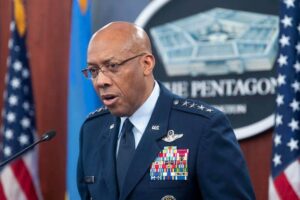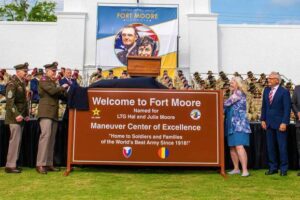In a political landscape often characterized by division, a unique group within the U.S. House of Representatives, known as the For Country Caucus, seeks to bridge partisan gaps with a shared commitment to national service. Comprised of military veterans from both sides of the aisle, this caucus exemplifies cooperation amid congressional discord.
The significance of teamwork and camaraderie, reminiscent of traditions seen at events like the Army-Navy football game, inspires the caucus’s mission. “We’re trying to lead by example,” expressed Colorado Democrat Jason Crow, a former co-chair of the caucus, highlighting the importance of bipartisan engagement.
Since its inception in 2019, the For Country Caucus has been instrumental in the passage of over 100 pieces of legislation. These laws address critical areas such as national security, military support, and veteran affairs. Noteworthy achievements include the first increase in two decades in financial assistance for military families facing the economic burdens of deployment, and provisions for remote work opportunities for military spouses.
The caucus’s influence extends beyond domestic policies. It played a pivotal role in legislation supporting the evacuation of Afghan allies and was a driving force behind the creation of the Global War on Terrorism Memorial, currently being designed for the National Mall.
Members meet regularly, engaging in sessions with military leaders and exploring topics like national service. “We believe really strongly that one of the ways to bring Americans together is to get Americans to work together again,” said Crow, emphasizing the power of community service in uniting disparate groups.
The caucus’s reach is expanding, with expectations to grow its membership in the next Congress. Leadership transitions will see Texas Republican Jake Ellzey and North Carolina Democrat Don Davis taking the helm, following the tenure of Crow and Texas Republican Tony Gonzales.
Notably, several members share deep military connections and histories. For instance, Pat Ryan and John James, both West Point graduates, and Ellzey, who provided air support for caucus member Mike Waltz during military operations, exemplify the intertwined personal and professional networks within the group.
The caucus remains vigilant on issues affecting veterans and military personnel, ready to spring into action if legislative challenges arise. Steve Womack, a Republican member, underscored the group’s readiness to address any concerns that conflict with their shared values.
Despite differing backgrounds, the caucus members prioritize finding common ground over ideological battles. “We’re not going to take an all-or-nothing mentality,” Crow noted, stressing the importance of compromise and collaboration in serving the American people.

